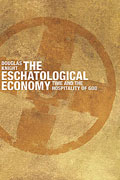
God’s elect people, Israel, demonstrated in the public drama of sacrifice to the watching world that Israel’s God is the one true God. But when later Christians ceased to read the Old Testament as God’s witness to the world of the Gentiles, Israel came to be understood instead as just an example of primitive society, and Israel’s sacrifice was understood as just another form of primitive violence.
The result of this was first a smug account of the superiority of the Church over Israel, then (in the eighteenth and nineteenth centuries) a story about how far we have come since we were primitive, and then (in the twentieth century) a merely secular notion of historical change and cultural relativism. The result of this belief that ancient people sacrificed animals (and we don’t), and that the particular people of Israel are forever associated with this, means that Jews became identified as non-modern. Some of the best known champions of modernity, amongst them Kant and Hegel, wondered whether the particularity of the Jewish people was an obstacle to the unity and maturity of nations.
So the issue of sacrifice is linked to that of supersessionism (‘replacement theology’), and it has significant political consequences. To look ahead for a moment – is modernity is intrinsically supersessionist? Does modernity have a prejudice against the particularity of individual peoples? Does modernity mean simply homogenisation? These were some of the questions that needed to be asked.
You can find out more about The Eschatological Economy at Amazon.com or at Amazon.co.uk or at Eerdmans
